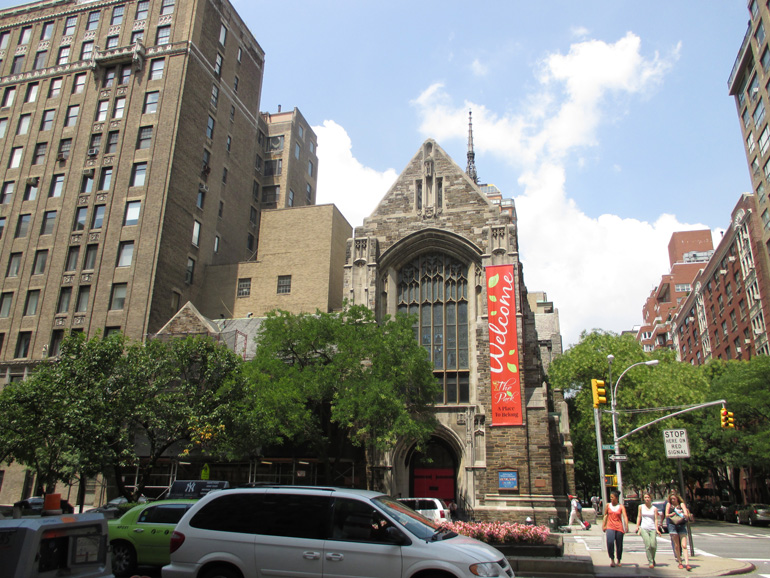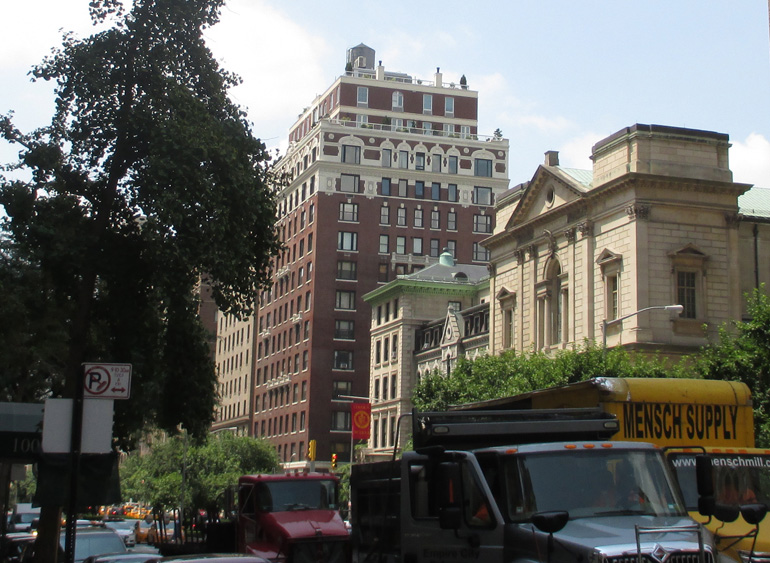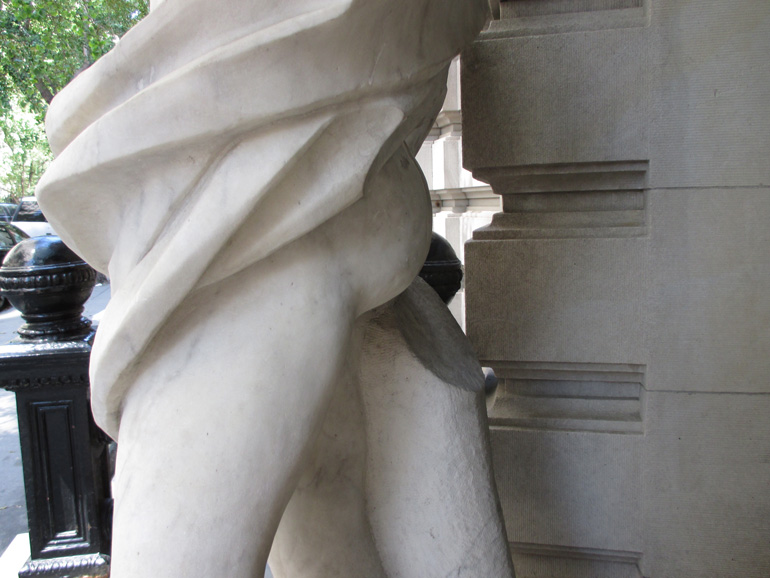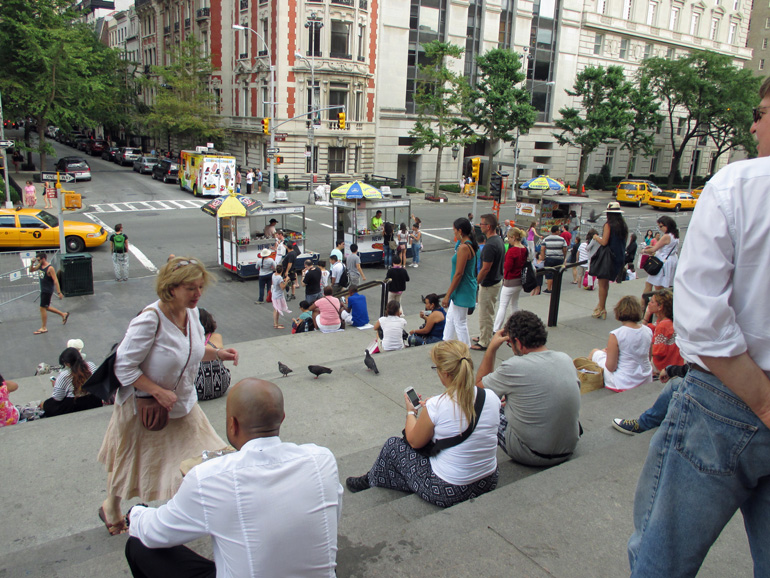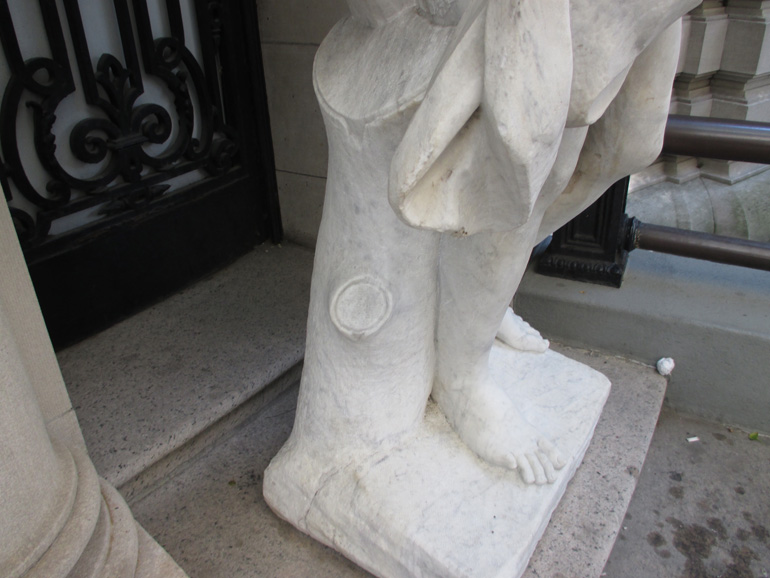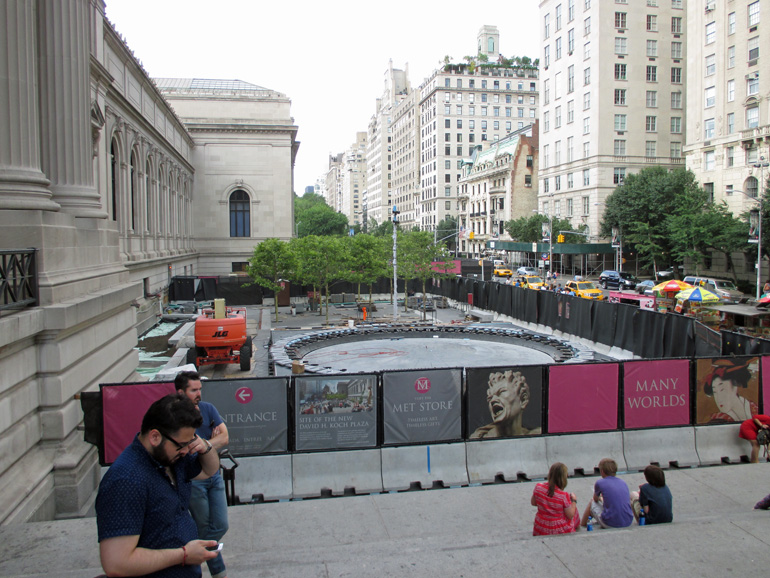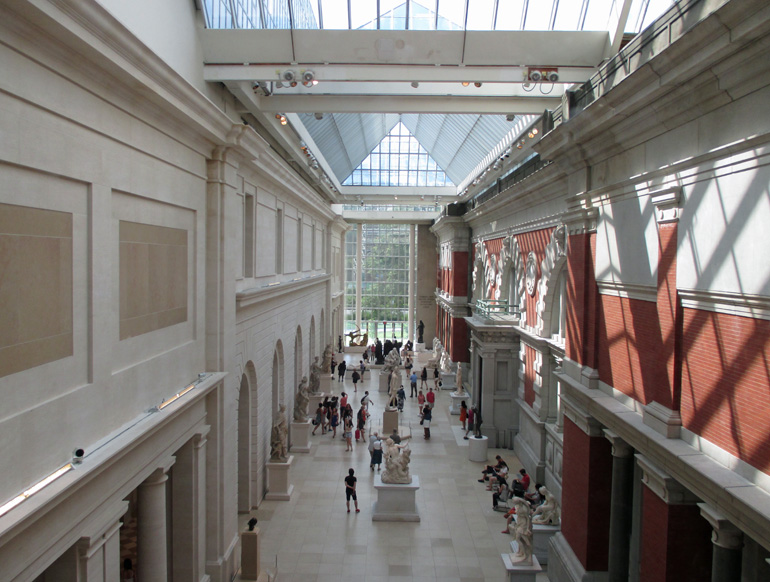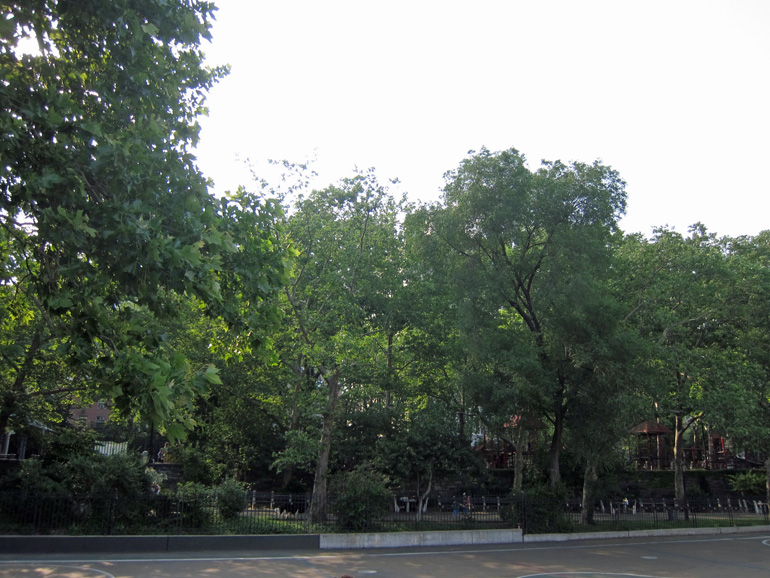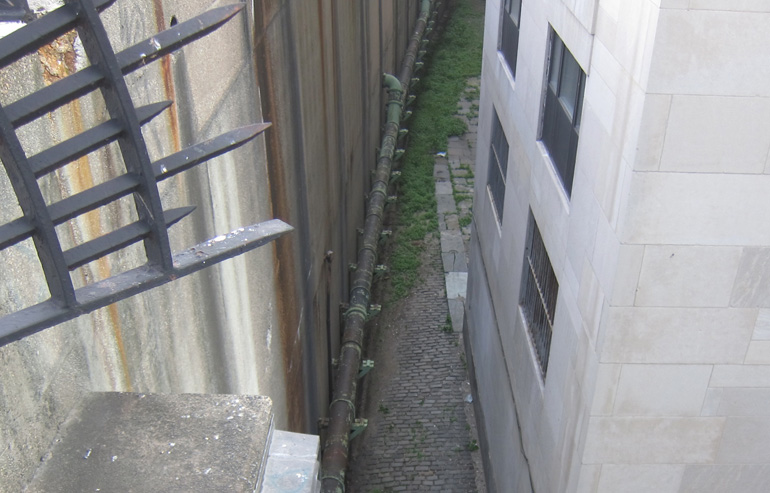Gotham Diary:
The Broccoli Problem V
30 July 2014
Wednesday, July 30th, 2014
With this entry, I intend to wrap up this very preliminary discussion of the problem of the humanities in the modern West — how what was beautiful has become broccoli.
As I argued at the start, the pursuit of sensuous beauty by the artists of the early modern West was a response to the appropriation, by ruling princes, of the legacy of the antique world, both the “real” and the “mythical” (Hercules as well as Caesar). The stories of antiquity were centered on gods, goddesses, and mortal heroes who were conceived — particularly the heroes and the younger goddesses — as suitable for pictorial representation as nudes. At the same time, those stories were recycled by contemporary poets and writers in such a way that antique lore could become the shibboleth of entrée to princely courts. Only those who were seen to be familiar with this material were recognized as courtiers.
The relation between princes pursuing enhanced state power and artists pursuing association with princes characterized the art world of the West until the end of the Eighteenth Century. It was in terms of that relationship that the Western eye for beauty was developed. Inevitably, however, the humanist questions of classical antiquity were revived alongside the old stories. These questions — what does it mean to be mortal? what does it mean to love, and to be rejected? — had been asked by the ancients, but their attempts at answers had been superseded by Christian explanations. In the early modern courts, there was a shift away from answering questions in terms of divine love and immortal souls toward answering them in terms of aesthetic harmony. Just as Plato had called upon astronomers to explain the movements of celestial bodies in terms of uniform circular motion, so the growth of the humanities in the modern west always prioritized beauty.
The difference between Plato’s astronomy and the Western humanities is that Plato’s disciples weren’t creating anything. They were merely attempting explanations. The Western humanities, in contrast, created the countless galleries of art, libraries of books, public buildings and sculptures that were recognized, until the last century, as a matchless cultural achievement.
From the moment that young men who had no intention of taking holy orders began spending time in Europe’s universities, initially as little more than finishing schools, the Scholarly Humanities that I talked about yesterday were adapted for Honourable Humanist purposes. From the young aristocrats at Oxford and Heidelberg to the children of immigrants who made up the student body at the once-great Erasmus Hall high school in Brooklyn, liberal education transformed humanist questions into a humanizing project, the object of which was to impart a consciousness of problems and possibilities beyond the satisfaction of gross bodily demands for sustenance and comfort.
The touchstones of this project were the arts of the West. The humanist questions were materialized, as it were, in Old Master paintings and sonnets by Shakespeare and Donne. As the lessons percolated down through socio-economic layers that had never been offered education before, the focus on the courtly origins of beauty in the West were muted if not altogether extinguished, and artefacts deemed to be merely “pompous” were ignored. But it was believed in earnest that the instillation of a sense of beauty makes a major contribution to the richness of life.
Such faith began to fray when I was a student. The constellation of Western humanism was widely regarded as “irrelevant.” It reflected a bygone way of life whose values had been crushed in the course of two world wars and the onslaught of several totalitarian regimes, two of which were still in power. Critics argued that Western art in all its forms was little more than an instrument of social control, as if art were nothing more than the shibboleth that it had been at princely courts. The humanities were also seen as having been displaced by the sciences. Instead of asking armchair questions about love and death, scientists would hook people up to laboratory experiments and get some answers. The contribution of the humanities degenerated into something “good for you” — broccoli.
Fifty years on, this rejection of Honourable Humanism — the humanism pursued by educated men and women in the course of their domestic and professional lives — has yielded shallow generations of smart people with no perspective for evaluating human affairs. Everything of importance has, it is felt, yet to happen, but the novelties of the future are naively regarded as issuing from that future, and not from work done in the past. The history of every device begins, in popular understanding, with its launch, but in fact we are still living in the shadow of Xerox PARC, that long-shuttered corporate laboratory of now-unimaginable largesse. Western technology has a history — a history that explains much of its regrettable impact on the environment. Technology is not quite as non-humanist as many believe. That is because it is still produced by human beings.
Western humanism is much too multifarious and supple not to outgrow its dependence on the princely courts that gave birth to it, but it is important to understand the roots of humanism in order to shape it for present purposes. Beyond that, the centrality of beauty in Western humanism is what opens the universe to the common sense that the meaning of life is greater than our grasp. Without the sense of a world beyond, we despair: is this all there is?
The aesthetic of today appears to be inspired by a sense of the extra-terrestrial, the world that lies beyond our World, in which no human being could survive for an instant without massive (and somewhat dehumanizing) insulation. There is an impatience with our mortal frames that strikes me as the final exasperation of an empty-headed consumer society. I am convinced that this engenders a contempt for humanity, among the expressions of which are the horrific mass shootings that remind us so stringently that we remain earthbound organisms comprised largely of soft, semi-liquid tissue. How many young men must wish that they were not themselves but their hard and shiny smartphones!
The sense of beauty, once it has established itself in the human mind, is no longer something “good for you.” It is a source of delight and joy that reconciles us, ineffably, to our human limitations. It is up to you, as a member of the Honourable Elite, to remember this, and to look for pleasure where it may be found.
Daily Blague news update: Escape Hatch?


